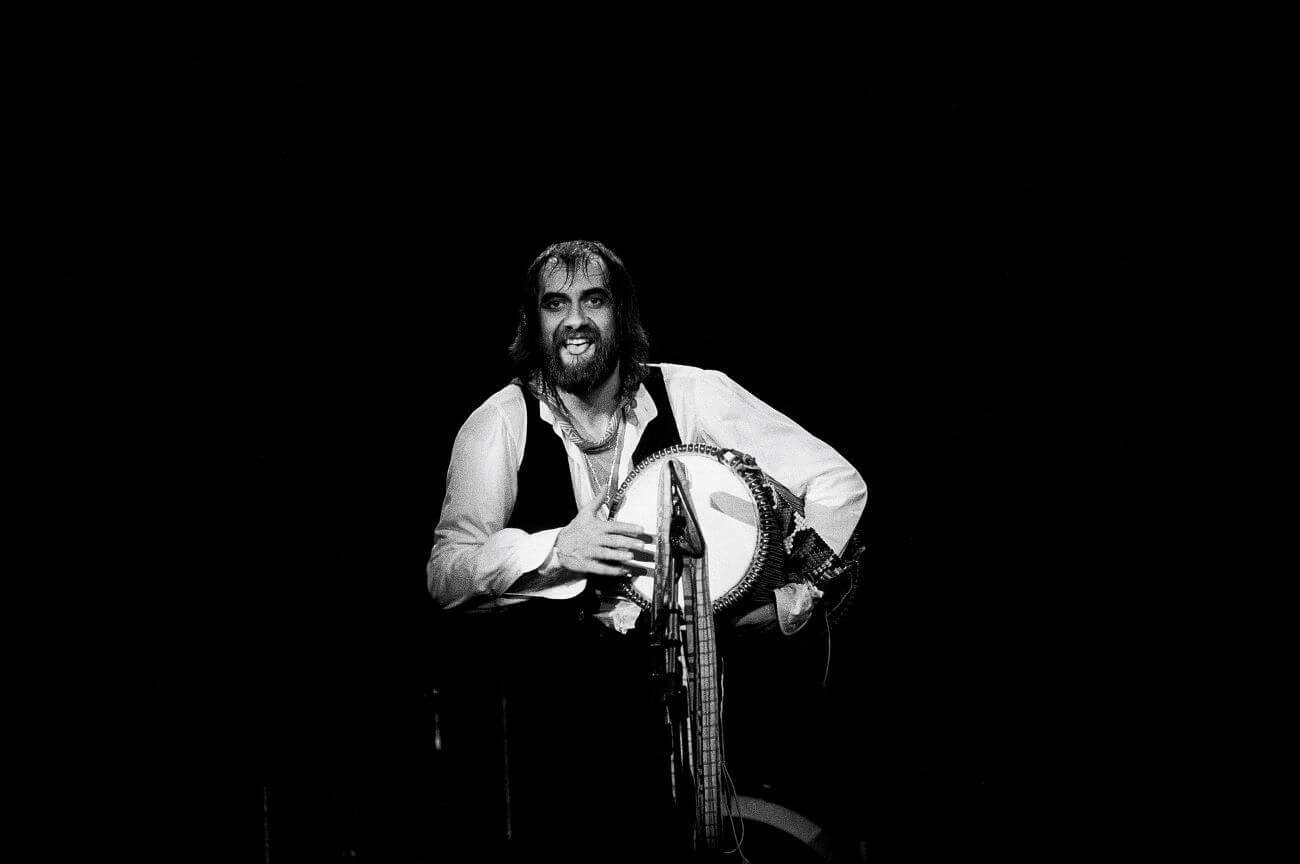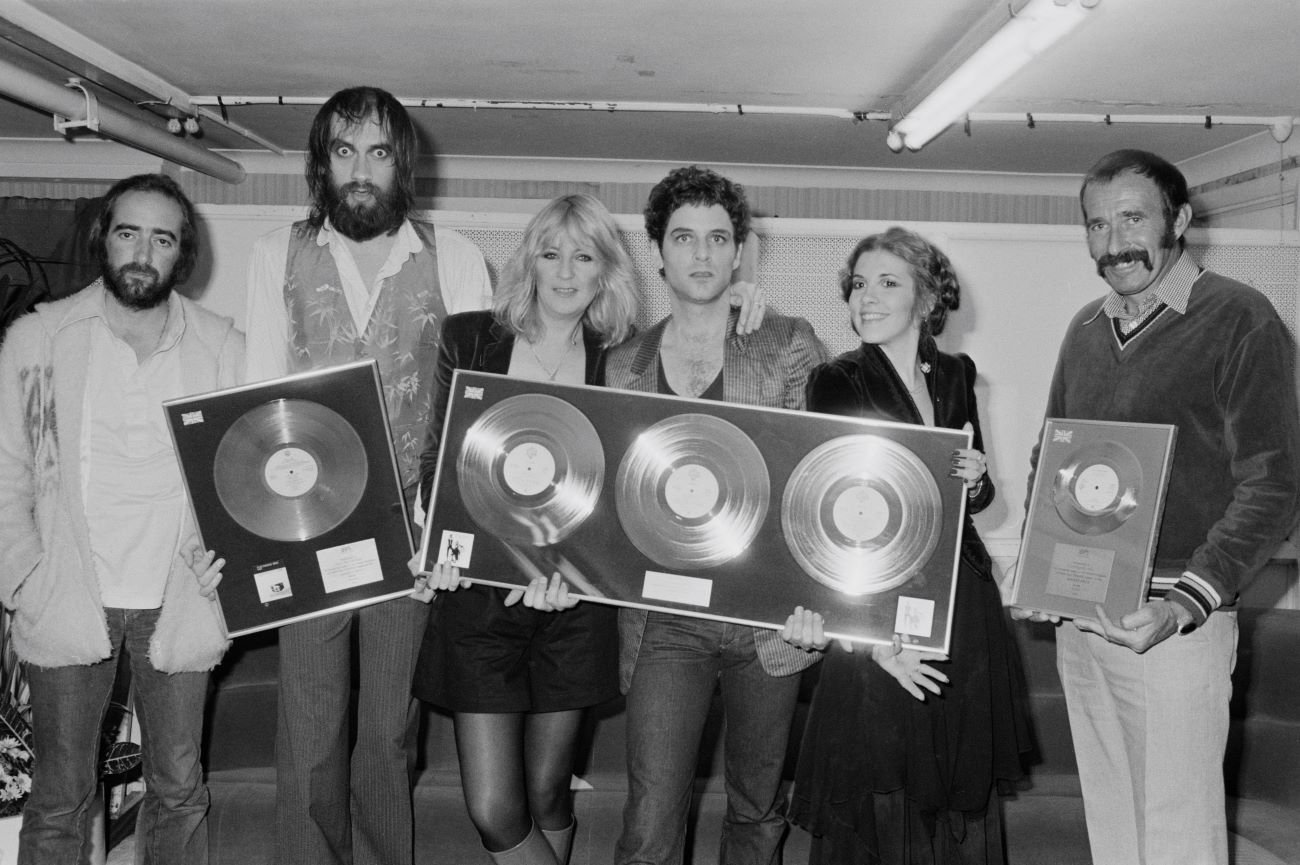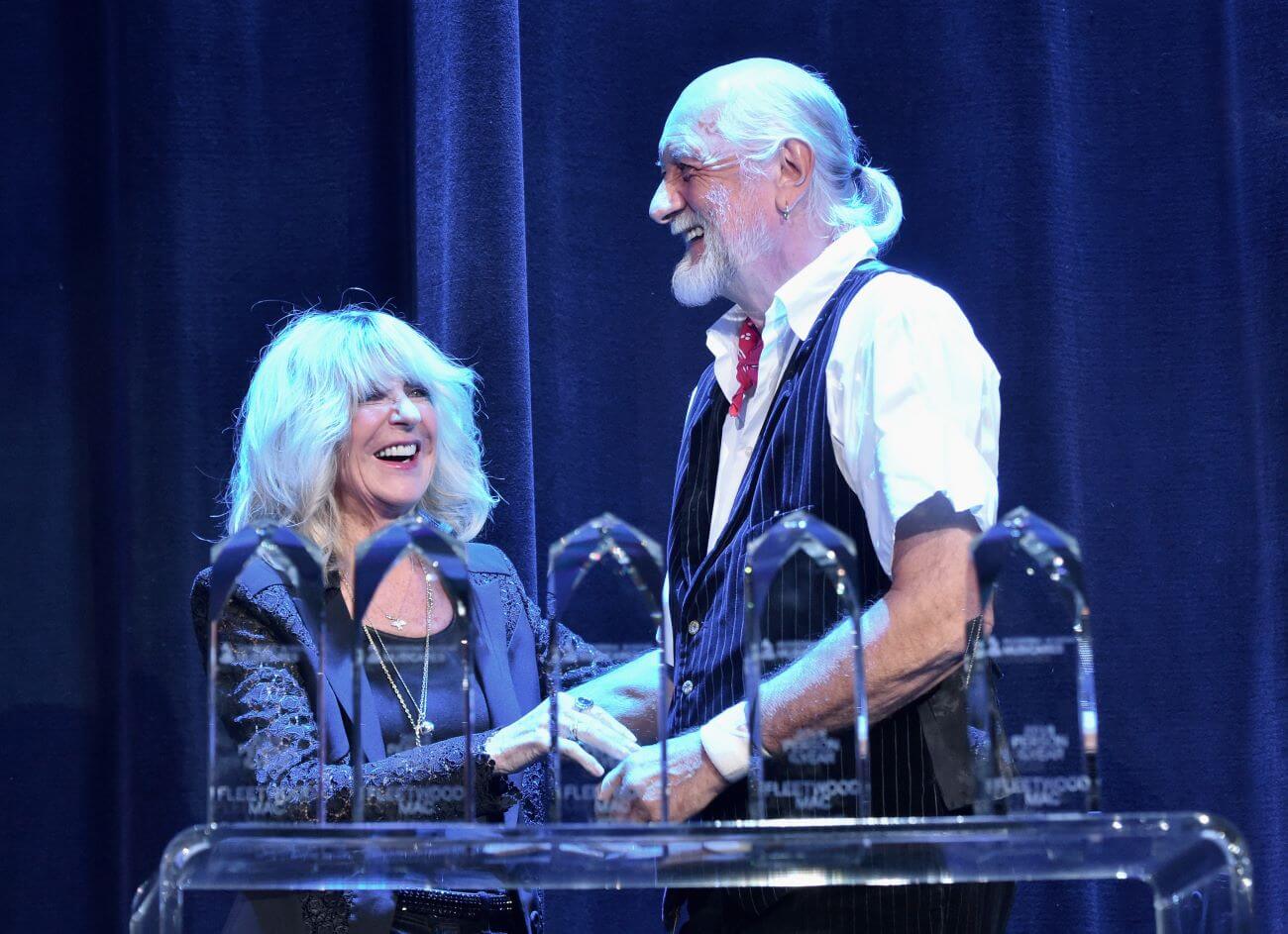
Christine McVie Said Mick Fleetwood Entered the Lowest Period of His Life After Fleetwood Mac’s ‘Tusk’
In 1979, Fleetwood Mac released Tusk, and, in the album’s aftermath, Christine McVie said Mick Fleetwood sank to the lowest point of his life. The band’s drummer had served as the glue holding them together for years. By the early 1980s, though, his personal life was as plagued with problems as the band’s dynamic had been in the Rumours era. McVie explained that his problems appeared to shrink him.
Christine McVie said Mick Fleetwood struggled in the time after ‘Tusk’
Fleetwood’s problems began after the Tusk tour. He had been serving as the band’s manager, but exorbitant spending on the tour left the group with significantly less money than they expected. As a result, his bandmates fired him from the position.
From there, Fleetwood made a series of questionable financial decisions. He bought a home in Los Angeles and a 1000-acre farm in Australia. Eventually, he declared bankruptcy.
“I thought it was a great place for all my friends and family, but it was also a pipe dream that literally took me to the poorhouse,” he said of the Australian property (via Rolling Stone). “I went broke.”

Fleetwood was also heavily consuming drugs at the time, which McVie said seemed to shrink him.
“Everything about him became little,” she told Rolling Stone in 1997. “He wasn’t walking with his shoulders straight like he always used to. It was sad to see that. He didn’t seem happy, didn’t know how to function unless he was high. He would just sleep the whole time – just hooked on drugs, about as low as he could get.”
She added that his living conditions worsened as well.
“I remember him telling me he was living in somebody’s basement with a damp carpet,” she said. “The carpet was soaking wet, and the bed was damp, and he used to lie in bed watching soap operas all day long.”
Christine McVie said Mick Fleetwood held the band together at their lowest point
Fleetwood’s struggles concerned McVie because he had long been the driving force behind the band. He kept them together during the tumultuous Rumours era, when all of their romantic relationships fell apart.
“Mick was sort of holding everything together,” McVie said. “But the music was, also. The music was very rewarding. It was very powerful to be there recording these songs.”
By 1987, Fleetwood was back with the band recording Tango in the Night. He had also resumed his role as the band’s biggest cheerleader. For years, he has pushed them to tour and make new music. Even as members come and go — and many have in his many years with the group — Fleetwood has kept the band alive.
“That’s the nature of being in a rhythm section,” he said. “You need someone to play with. John and I can’t do this in our living room. Also, John and I sticking it out comes from abject fear. What the hell would we do if there was no band? For the most part, amazingly, it worked out, which is a form of alchemy and magic that I will never really truly understand.”
The Fleetwood Mac drummer said the band was ‘done’
After being a member of Fleetwood Mac for the majority of his life, even Fleetwood concluded that the band had little chance of working together after McVie’s death. She had been in the group for nearly as long as Fleetwood and was an essential member. Without her, a path forward for Fleetwood Mac is unlikely.

“I think right now, I truly think the line in the sand has been drawn with the loss of Chris,” Fleetwood told the LA Times. “I’d say we’re done, but then we’ve all said that before. It’s sort of unthinkable right now.”


